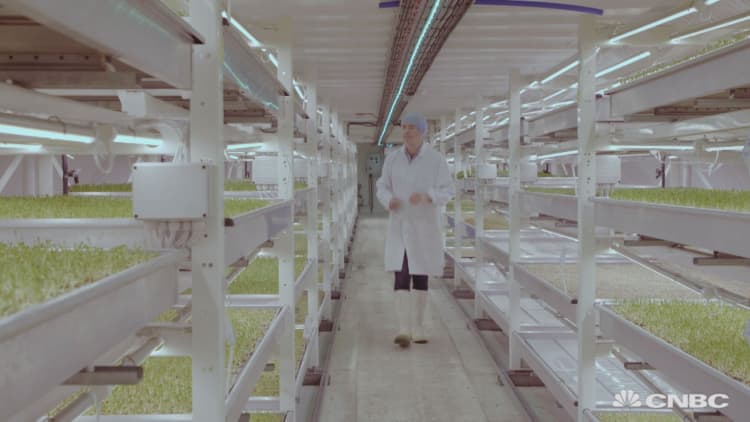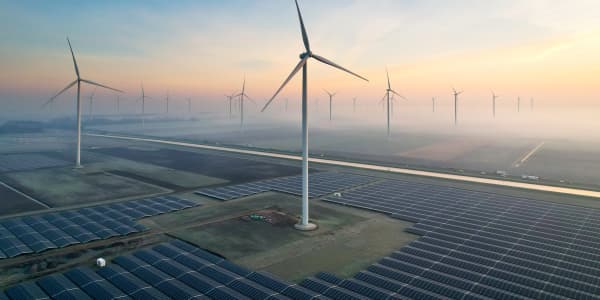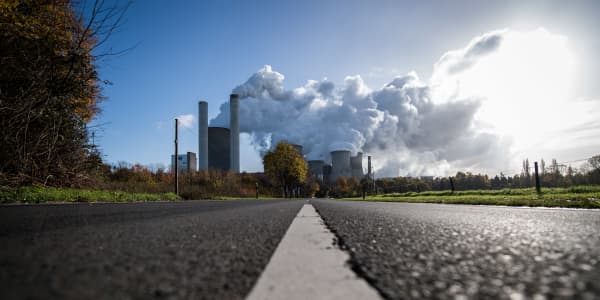
Home to some of the world's leading universities, research institutes and start-ups, London is a hive of innovation and smart thinking.
In the south of the city, beneath the bustling streets of Clapham, one business is looking to change the way we think about where — and how — our food is produced.
Growing Underground uses hydroponic systems and LED technology to grow micro greens and salad leaves all year round. Because the crops are grown underground, they are not affected by the weather and changing seasons.
So what, exactly, is hydroponics? As the Royal Horticultural Society puts it, it is "the science of growing plants without using soil, by feeding them on mineral nutrient salts dissolved in water."
Steven Dring is the co-founder and CEO of Growing Underground. He told CNBC's Didi Akinyelure that LED lighting was now "advanced enough to replicate the spectrum that we get from the sun."
Dring said the business supplied a variety of customers in the U.K., from restaurants to contract caterers and hotel groups, as well as supermarkets such as Marks and Spencer.
In terms of the environmental impact Growing Underground's system has, the firm says it uses 70 percent less water than "traditional, open-field farming." Throughout the farm, sensors have been placed in strategic places. These sensors measure a range of data, including air velocity and temperature.
"We're capturing all these different elements around the environment and then, in real time, we're adjusting that to give the plants exactly what they want, all of the time," Dring said. "It's just giving the plants an optimum environment to grow every second of every day."
While collecting the data is important, getting the right people to analyze it is equally so.
"All of those sensors go back to… cleverer people than me at Cambridge University," Dring said. "They crunch all the numbers and all the data and then we're constantly adjusting the systems with those guys to make sure that we've got the optimum environment for growing."




